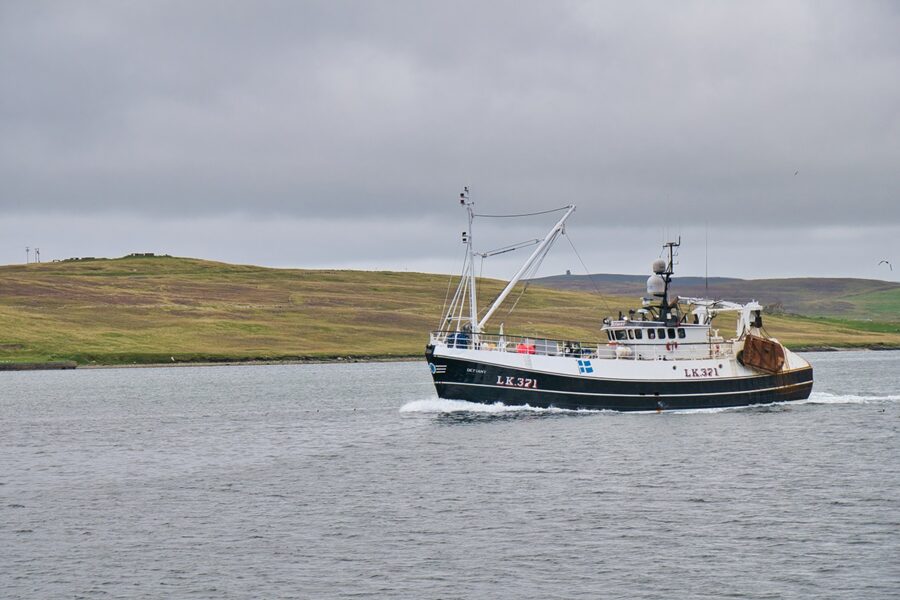No access to Norwegian waters or quota transfers
Industry leaders on both sides of the Scottish border have warned of a very tough year ahead for whitefish boats after the UK and Norway failed to reach agreement on fisheries opportunities for 2021, reports Tim Oliver.
No deal means UK vessels will have no access to Norwegian waters this year and no transfer of quotas to help the hard-pressed demersal fleet, particularly in the North Sea and west of Scotland.
The talks are understood to have broken down over access terms for Norwegian vessels to fish pelagic species in UK waters and Norway’s refusal to pay for this access with quota transfers.
The dispute included a stand-off over Arctic cod, which the UK formerly received from the EU in exchange for Scottish pelagic quotas. The Scottish pelagic sector wanted to break this link, and Norway refused to grant cod and haddock quotas in the Barents Sea without pelagic quota in exchange (see opposite).
With no agreement with Faroe for 2021, the lack of a deal with Norway will increase pressure on UK quotas as effort is displaced into UK waters.
Talks to try to reach a deal with the EU were continuing last week, with an expectation that they would be concluded one way or another by the end of the week.
Elspeth Macdonald, chief executive of the SFF, said the failure to reach an agreement was ‘disappointing, especially for our whitefish fleet, as Scottish and UK negotiators worked hard to make a fair and balanced offer to their Norwegian counterparts that would have been to both parties’ advantage for the rest of this year’.
But, she said, the outcome reflected the UK’s new status as an independent coastal state, which has ‘fundamentally changed the fisheries landscape in the NE Atlantic’.
“Both Faroe and Norway have decided not to have agreements with the UK this year, despite having overarching fisheries framework agreements with the UK.
“This means that the Scottish fleet will not have access to the Norwegian EEZ for the rest of 2021, and nor will Norwegian vessels be able to fish in Scottish waters this year.
“The government’s failure to secure a good deal for fishing in the Brexit negotiations, alongside our fleet not having access to Faroese and Norwegian waters this year, means that our fishing opportunities and patterns for 2021 are very constrained,” she said.
Challenging year
Mike Park, chief executive of the Scottish White Fish Producers’ Association, said that the whitefish sector faced its most challenging year since 2001 and the introduction of the EU cod recovery plan.
“It beggars belief that we’ve managed to manufacture ourselves into this position. Even the biggest cynic of Brexit wouldn’t have believed that you would be in this situation now,” he told Fishing News.
“There’s been an abject failure this year to strike deals, and it’s difficult to see on the face of the position Norway is taking, of not wanting to pay for access, how you manoeuvre yourself out of it. This year sets all sorts of precedents for a deal with Norway.”
He said disruption of fishing patterns would bring more problems and issues for the whitefish sector. Vessels would be forced to diversify and ‘think outside the box’, and some would not be able to find a way to survive (see below).
Elspeth Macdonald and other Scottish leaders said they appreciated the efforts of negotiators ‘who worked hard to try to secure a deal with Norway that would have helped our whitefish fleet during what is an extremely difficult year for the industry’.
NFFO chief executive Barrie Deas said the failure to reach a deal would mean ‘the loss of very significant fishing opportunities that will carry direct consequences for the vessels and fishing businesses concerned, but also a range of indirect consequences, including fleet displacement’.
He said: “Whilst the frustration and disappointment surrounding the Trade and Co-operation Agreement (TCA) with the EU was mainly driven by thwarted expectations, the failure to reach agreement with Norway will mean a significant and absolute reduction in fishing opportunities for our fleets.
“Together with the failure of talks with Faroes to secure an agreement, there is likely to be a significant displacement effect as vessels try to make a living in the constrained waters of the North Sea and west of Scotland.”
The federation met fisheries minister Victoria Prentis shortly after the talks collapsed to express their ‘disappointment and alarm’, and are due to meet officials for an analysis of the negotiations.
“As both parties have much to gain from an annual fisheries deal, we are anxious to understand why it was not possible to find agreement,” said Barrie Deas.
“Until we receive a full briefing, it will be difficult to understand the negotiation dynamic that led to this outcome but, as with the UK-EU negotiations, all parties will have an eye to the precedents set for the future.
“Access to fish in UK waters and post-CFP adjustments are certainly part of the mix.”
He added that he hoped a deal with Norway could be agreed in 2022.
A DEFRA spokesperson said: “We have always been clear we would only strike agreements if they are balanced and in the interests of the UK fishing industry.
“We put forward a fair offer on access to UK waters and the exchange of fishing quotas, but we have concluded that our positions remain too far apart to reach an agreement this year.
“Norway is a key partner, and we will continue to work with them over the course of the year.”
For more up-to-date, in-depth news on the UK and Irish fishing industry, subscribe to Fishing News here.








